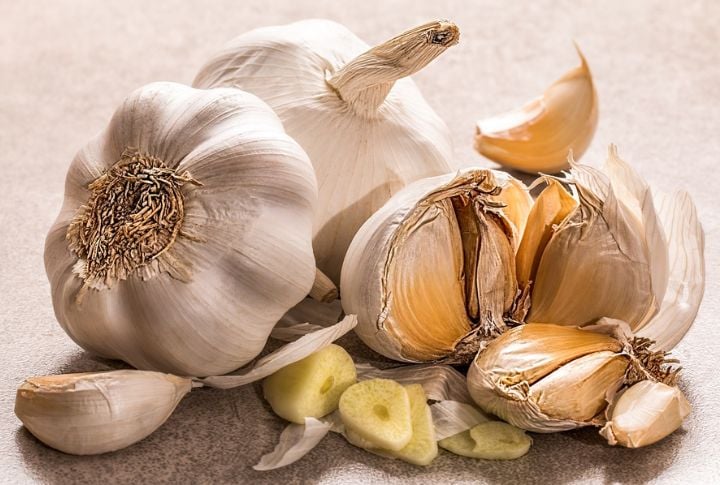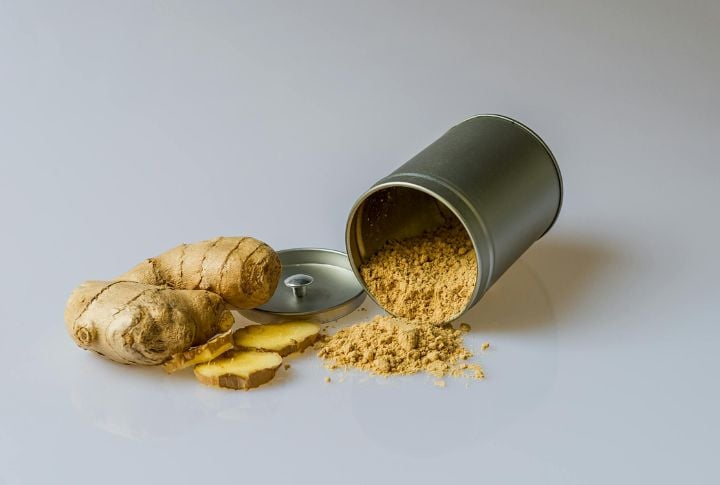15 Everyday Herbs & Spices And How They Impact Your Dog’s Well-Being

Dogs can’t handle every herb and spice the same way. Some can work wonders in small amounts, while others pose serious risks. Knowing the right kind and the proper dosage is key to safely adding these seasonings to your dog’s diet. Curious about which herbs make the cut? Let’s spice up your pup’s meals—safely!
Nutmeg

Forget what you know about nutmeg in eggnog because this one’s toxic for your dog. Even a pinch can trigger tremors and a racing heart. Blame myristicin, a compound dogs can’t process well. Leave this spice out of every treat, no matter how tempting the recipe is.
Basil

If you’ve got fresh basil, your dog can safely have a few chopped leaves. It won’t cure anything but adds antioxidants and a little flavor. Don’t toss it in sauces, though. Too many extras, like salt, can upset your dog’s stomach. Use it fresh and in tiny amounts.
Cinnamon

Cinnamon is not always sweet. Cassia cinnamon contains coumarin, which can strain your dog’s liver. One sprinkle won’t kill, but crossing the line is easy. Want the safer route? Stick with Ceylon. Especially skip anything labeled “essential oil”—that stuff burns before it ever helps.
Garlic

This one’s not up for debate. Garlic damages red blood cells and drains your dog’s energy. It builds up over time, especially in certain breeds. Whether cooked or raw, it’s a threat. Don’t wait to see what happens if your dog gets into it.
Ginger

Ginger has your back when your pup’s stomach feels off. It can ease nausea and take the edge off motion sickness. Just grate a bit—no more than a quarter teaspoon and mix it with food. Having too much ginger can upset the pooch’s digestive system, so be careful.
Oregano

Oregano may seem harmless, but the dried version can seriously disrupt your dog’s digestive system. Diarrhea and vomiting are common after a huge amount. Oregano oil? A definite no-go as it can cause mouth ulcers and burns. Choose a safer herb like parsley which has a proven track record to help dogs instead.
Turmeric

Curcumin, the compound in turmeric, works its best when combined with fat and black pepper. While turmeric alone is good with its anti-inflammatory properties, the full benefits come with these two ingredients. Just remember—start with small amounts to avoid any digestive drama!
Parsley

Don’t trust the name alone. Flat-leaf parsley is fine in moderation, but spring parsley is toxic. It contains compounds that can cause sun sensitivity and liver issues. Unless you’re sure which kind you have, avoid the risk. Keep your dog out of the garden, too.
Sage

While not an absolute no-go, this herb carries risks. Thujone, the compound in wormwood, can trigger seizures in high doses. Small sprinkles here and there are safe, but oils and concentrated forms pose a serious threat. Use sparingly and always in dry form.
Dill

Looking for something to soothe a gassy pup? Dill might help. Its antispasmodic qualities can relax the digestive tract. Don’t assume dill pickles count—they’re loaded with salt and vinegar. Stick with chopped fresh dill and ditch the brine altogether. Dogs don’t need fermented sides.
Rosemary

Herbs like this can be useful for preserving dog food, but on their own, especially as oils can be problematic. Dogs with epilepsy are particularly sensitive. A small amount may be fine, but concentrated forms should be completely avoided. Stick to minimal and safe usage.
Cilantro

Not every dog likes cilantro’s punchy flavor, but it’s a decent herb if yours doesn’t mind. The leaves contain Vitamins A and K. Skip the stems and seeds—they’re too fibrous. Give it a shot in tiny bits and monitor how digestion holds up.
Fennel

Often used to ease bloating, Fennel contains estrogen-like compounds that may disrupt hormone levels in young or unneutered dogs. Providing excessive amounts can even have unexpected effects, such as disrupted heat cycles. Unless you’re confident about dosage and timing, it’s safer to choose a vet-approved anti-gas remedy instead.
Thyme

Thyme has benefits, sure, but most people overdo it. Dried thyme can irritate sensitive guts, and thyme oil isn’t even in the conversation—it’s dangerous. Stick with a few fresh leaves, minced well. It’s got antibacterial perks, but only when you stay inside the safe lane.
Chives

Not just a mild onion substitute, chives are a serious hazard. They break down red blood cells, much like garlic and onions. A small bite can take days to show symptoms, including vomiting and pale gums. There’s no safe amount, so avoid them altogether.






